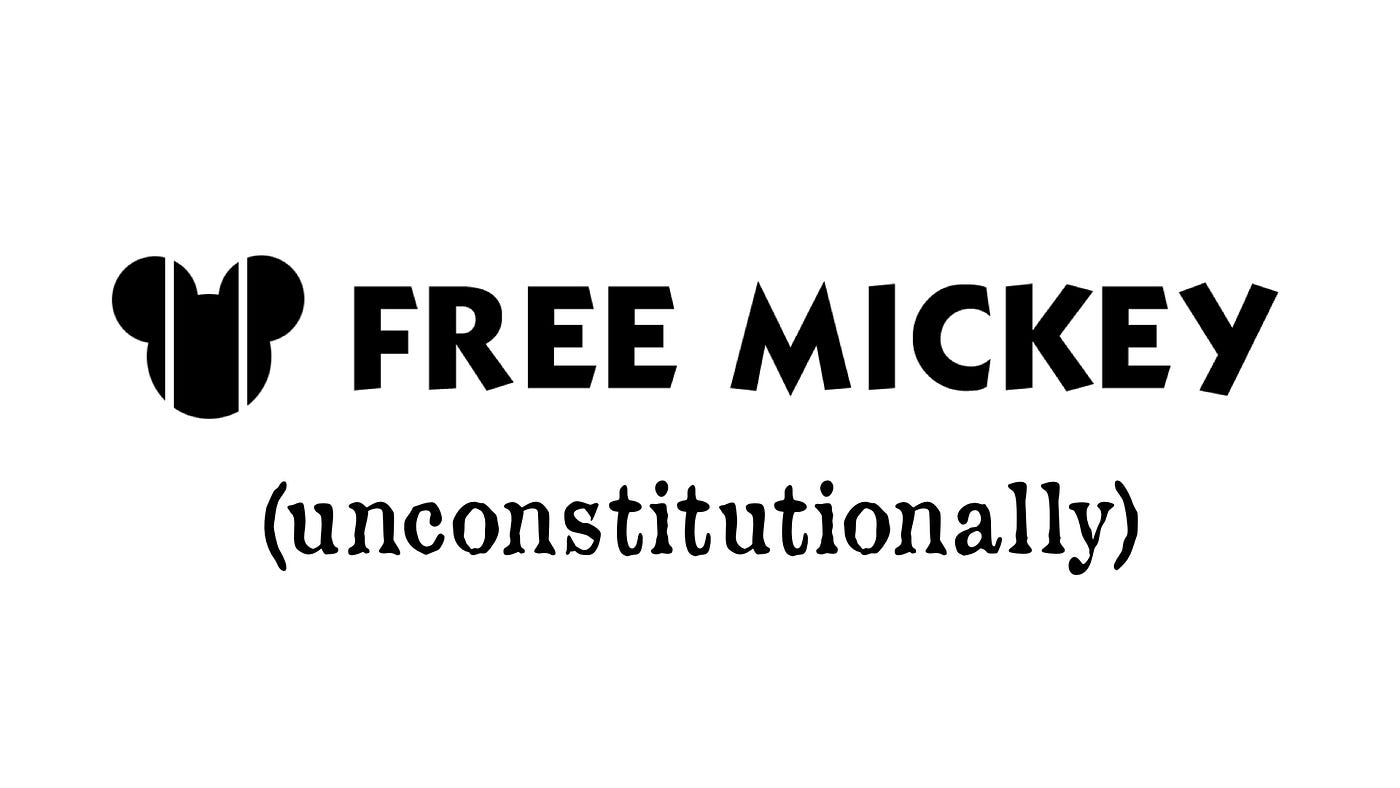

Freeing Mickey, Unconstitutionally
source link: https://medium.lessig.org/freeing-mickey-unconstitutionally-de54c4ff30a9
Go to the source link to view the article. You can view the picture content, updated content and better typesetting reading experience. If the link is broken, please click the button below to view the snapshot at that time.

Freeing Mickey, Unconstitutionally
The Walt Disney Corporation has received a wide range of benefits from American governments. None has been as important as the ever-increasing term of copyright. Beginning in 1962, Congress extended the term of existing copyrights eleven times, including the Sonny Bono Copyright Term Extension Act of 1998, which extended existing copyrights by 20 years.
I litigated the constitutional challenge to those term extensions. The Constitution gives Congress the power “to promote the Progress of Science” “by securing” “to Authors” an “exclusive Right to their” “Writings” “for limited Times.” The repeated extension of copyright terms, I argued, was inconsistent with “limited Times,” and the purpose of the clause, “to promote … Progress.” (The latter point Nobel Prize-winning Milton Friedman called a “no brainer” when joining a brief challenging the extension in the Supreme Court. )
In 2001, the DC Circuit upheld the extensions, Judge David Sentelle dissenting. Sentelle relied upon the then-ascending jurisprudence of Supreme Court conservatives eager to set the “outer limits” to the powers of Congress, by interpreting the text of the Constitution more strictly. In 2002, the Supreme Court affirmed the decision of the DC Circuit. None of the then-five conservatives on the Court explained just why they were declining Judge Sentelle’s invitation.
Senator Josh Hawley (R-MO) has now introduced legislation to strip Disney of its extended terms. The Copyright Clause Restoration Act of 2022 would restore a 28-year copyright term, renewable once if the copyright owner requests it. The bill would apply retroactively to any copyright owned by a “person” who has a “market capitalization of more than $150,000,000” and is in either the motion picture or arts and entertainment industries. There are reportedly about 70 companies that would be affected by the retroactive elimination of copyright protection — including, most obviously, Disney.
Though it would violate international obligations, Hawley’s proposed 28-year renewable term has merit. The vast majority of copyrighted works have no commercial life after even 10, let alone 28, years; allowing them to pass easily into the public domain would give archives and public domain publishers an easy opportunity to make that work more accessible.
But the retroactive application to Disney is flatly unconstitutional. Hawley admits the law was inspired by Disney’s opposition to Florida’s “Don’t Say Gay” law. He admits it would be unconstitutional if applied to Disney alone. Yet somehow he believes that if he takes the property of 69 other companies as well as Disney’s, his unconstitutional law as applied to Disney alone would somehow become constitutional.
It would not. The flaw in Hawley’s law is its plainly unconstitutional purpose. Though courts typically (and rightly) avoid inquiries into a law’s purpose, in this case, the purpose is too plainly declared: it is to punish Disney for its constitutionally protected speech. Congress has broad discretion under the Copyright Clause — indeed broader, under the Court’s view, than the text of the clause supports. But as Chief Justice John Marshall explained in one of the most cited Supreme Court cases, Congress’s discretion depends upon its “ends” being “legitimate.” And the end of punishing political speech that the government doesn’t like is not, in a free society, legitimate.
Yet the worst part of this story may not be the filing of a hopeless bill. It is the evidence the filing offers that constitutional and legal constraints — not to mention the truth — are not constraints in politics. Senator Hawley is a graduate of the Yale Law School; he was a law professor before entering politics. He knows his bill is unconstitutional. He knew his objections to certifying the 2020 election were literally lawless. But neither the law nor the constitution is a constraint for him, and for too many others as well. (Consider Governor DeSantis’s threatened removal of Disney’s special governance protections.) The end — of securing political support—justifies any possible means, not just the legal.
It is right and fair for conservatives to criticize the political speech of anyone, including a corporation. Fair and measured criticism is the lifeblood of a democracy, regardless of its source. But when a government punishes its citizens or corporations because it doesn’t like what they say, that is not democracy. It is not our tradition. And more from both parties need to stand up and say as much. In the land of the free, you don’t lose your land (including your intangible land) for speaking freely — unless too many let this corruption fester until it just seems normal.
Recommend
About Joyk
Aggregate valuable and interesting links.
Joyk means Joy of geeK